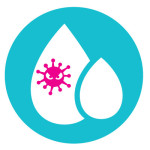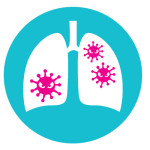Survey: 96% of Malaysian mothers are clueless about pneumococcal disease, whilst 97% are not aware that it can be prevented through vaccination.
Latest data shows that pneumococcal disease (PnD) kills close to half a million children less than 5 years old worldwide every year. Most of these deaths occur in developing countries. In Malaysia, the prevalence of pneumonia in children under 5 is between 28-39%. It is the fifth highest cause of death in Malaysian children, contributing 4% of deaths under 5 years old.
PnD refers to a host of illnesses caused by the bacterium Streptococcus pneumoniae (also known as pneumococcus).
meningitis
(inflammation of the lining membrane of the spinal cord and brain)
bacteraemia
(bacterial infection of the blood)
pneumonia
(infection of the lungs)
otitis media
(inflammation of the middle ear)
acute sinusitis
(inflammation of the sinuses)
PnD can lead to complications like hearing loss, learning disabilities, speech delays, cerebral palsy, mental retardation and sometimes even death.
Who Are Most At Risk?
Infants from birth to 24 months are at highest risk, due to their low levels of circulating pneumococcal antibodies. Children with weakened immunity (either born with a faulty immune system or the immune system is compromised following a previous illness or a side-effect of medical treatment), infants and children who attend day care and, children with chronic diseases such as asthma and congenital heart diseases are also among those at highest risk of developing PnD.
Recognise The Signs & Symptoms
Symptoms of the disease may sometimes overlap and some may be so subtle, it can be difficult to spot.
Meningitis:
Fever, severe headache, nausea, vomiting, diarrhoea, stiff neck, and photophobia (avoidance of light), irritability, lethargy, refuses to eat, and the fontanelle (soft spot a bit above the forehead) may bulge. Decreased level of consciousness and seizures may also occur.
Bacteraemia:
High fever and persistent irritability. A respiratory tract infection may or may not be present.
Pneumonia:
Rapid or difficult breathing and chest pain, chills, cough, and fever.
Otitis Media:
Earache, fever, irritability, and temporary hearing loss.
Acute Sinusitis:
A cold lasting more than 10 to 14 days, thick yellow-green nasal drainage, post-nasal drip, sometimes leading to or exhibited as sore throat, cough, bad breath, nausea and/or vomiting, irritability or fatigue.
If you detect any combination of these symptoms or if your child is not getting better from these symptoms after 3-5 days, bring your child to see a doctor or paediatrician immediately.
Preventing Infection
- Practice good hygiene at home and make sure your child’s day care centre does the same at their premises.
- Exclusively breastfeed your child for at least the first 6 months, improve your baby’s nutrition, and avoid air pollution (smoking, stove fires, car exhaust).
- Don’t send your child to day care/ school if he is not feeling well.
- Get your child vaccinated against PnD.
The most effective method for preventing PnD is by vaccination. There are two types of pneumococcal vaccines:
Pneumococcal polysaccharide vaccine, an earlier vaccine cannot be used in children under 2 years because it is not able to stimulate an adequate immune response.
The newer pneumococcal conjugate vaccine can be used in children from 6 weeks of life and induces immune memory and herd immunity. It also substantially decreases the rate of antibiotic-resistant invasive pneumococcal disease (IPD) in infants and young children.
The pneumococcal conjugate vaccine (PCV) is not a mandatory vac afe vaccine to administer to children.
Vaccination against IPD is an important life-saving strategy and reduces morbidity because:
- it may prevent children from ever being infected.
- it reduces the transmission of the bacteria in the community thus reducing IPD in other age groups (herd immunity).
- it reduces the need for antibiotics resulting in lower rates of resistant bacteria.
What is ‘Herd Immunity’?
When a large portion of a community is immunized against an infectious disease, most members of the community, even those who are not vaccinated, are protected against that disease because there is little opportunity for an outbreak.
Even those who have been previously infected only enjoy a limited degree of immunity, which may not be sufficient to protect them from subsequent infections. This is why scheduled vaccination regimes against PnD is highly recommended. Vaccines are available at private clinics and hospitals nationwide, visit your GP or paediatrician to find out more.
An educational contribution by Malaysian Paediatric Association.












Comments